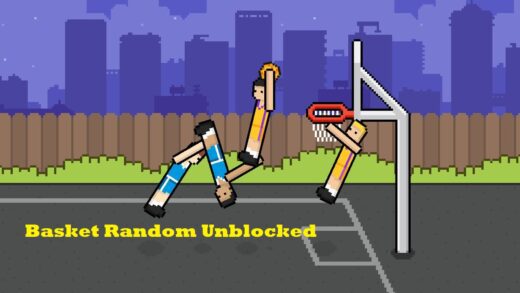Florida Sports Betting Update – The Seminole Tribe of Florida and the U.S. Department Of Interior have chimed in on their reply to last year’s decision by a district judge that struck down the gaming compact between state officials & members-native Americans.
The Seminole tribe’s Hard Rock Sportsbook mobile app was forced to close down after about a month in operation due to the ruling by the court.
Friedrich ruled that the gaming compact, which allowed for exclusive mobile sports betting rights in Florida by a tribe on their land, was against federal law.
IGRA is a federal law that covers Indian gaming across the country. The Interior Department reviews these compacts and decides whether or not they should be approved, but it has been occurring for quite some time now with little improvement in sight.
Mentioning IGRA as an issue within this passage would help answer questions from readers who may not fully understand how things work at their local level regarding tribal issues concerning gambling licenses.
Interior Secretary Deb Haaland is illegally ignoring state law when she signs off on agreements, not in compliance with IGRA.
The department claims this compact will be approved anyway, but it needs to follow the proper procedures and check whether both sides have been compliant before moving forward.
While the Indian Gaming Regulatory Act does not provide federal authorization for gaming outside Indian lands, it is a separate question whether an IGRA compact between a state and a tribe may acknowledge, rather than authorize, a state’s decision to allow such gaming,” the Interior Department stated. “IGRA permits compacts to address such gaming, notwithstanding that its legality ultimately turns on state law, so long as it directly relates to gaming on Indian land.”
The case is set for an oral hearing on December 14 in Washington, D.C. Still, it may be difficult to attend given that the city will likely experience flooding due to a broken river wall from nearby rainstorms.
The upcoming date of the argument has been rescheduled from last week’s original schedule, which called for delays because District authorities said they couldn’t provide adequate numbers at such short notice and without additional resources committed ahead-of time.
How The Case Got in The Limelight
The Seminole Tribe and Florida Gov. Ron DeSantis reached an agreement on a 30-year compact in April 2021 that includes sports betting rights for the tribe’s casinos and exclusive online licenses throughout all 50 states, which it will offer roulette table games at its tables too.
The deal also guarantees payments of $2 billion over five years with additional bonuses if they meet certain milestones, such as sometimes exceeding expectations or providing other reasons; not only does this work out, but both parties benefit.
The tribe agreed to establish a hub-and-spoke network with parimutuel operators. Those facility owners could install kiosks at their locations and take fees from the proceeds that machines generated, which is an important part of this statewide provision for sports betting.
The compact went through a 45-day review process at the Interior, but due to an oversight by department officials, it only took 28 days before they approved the agreement.
Magic City and Bonita Springs, sister companies that operate parimutuel facilities in Florida, opposed an agreement’s sports betting provisions for two reasons.
They claimed it would take place off reservations, which is against IGRA; additionally, they argued this change could hurt their business because athletes would no longer come into town for events or games played at local casinos if there were other options available online where you couldn’t see any results unless your team won.
If the brief is successful, it could mean major changes for online gaming in America.
Seminoles said plaintiffs only sued the federal government to stop it from utilizing rights
The Seminole Tribe’s brief Monday said that the plaintiffs only sued the federal government to stop it from utilizing rights they received in an amended compact.
“The only reason West Flagler brought suit against Interior is that it could not sue the tribe or state directly,” the tribe argued. “Instead, it sought to collaterally attack their agreement negotiated under IGRA by seeking a review of the Interior’s deemed approval in their absence. Preventing this collateral attack is where fairness concerns should focus.”
Tribe & Interior are Not bound in 100% Agreement
The federal government and the Seminole Tribe are appealing this decision, but they’re not necessarily on opposite sides.
In a historic first, two of America’s founding fathers are taking the Interior Department to court for denying their language rights.
The Magic City and Bonita Springs argue that federal law requires them to be consulted about any change in gaming compacts reached between local governments and Native American tribes.
But according to documents filed last year by these organizations with U.S. District Court in D.C., this didn’t happen here, so they’re arguing its improper.
The Seminole Tribe’s motion to dismiss was denied by Friedrich, who ruled that they would continue with their case.
The federal government has raised concerns about how the Seminole Tribe is appealing. According to them, their argument goes against precedence and could negatively impact other cases if granted.
A dispute over whether an Indian tribe can use its financial success in gambling as evidence for why it should be recognized by lawmakers or not might seem like something that doesn’t matter much at first glance. Still, this issue carries some weight given the recent events with Trump Administration decisions affecting Native Americans.
In its brief on Monday, the tribe said both the plaintiffs in the case and the federal government offer an “incredible argument” that the Seminoles are not a required party in the case and that the Interior Department adequately represents the tribe’s interests.
The Seminoles are unhappy about how this case has been handled, and they have a point. The Interior Department is a failure regarding the argument on their behalf.
The tribe argues that the department should have argued its case using deference language.



